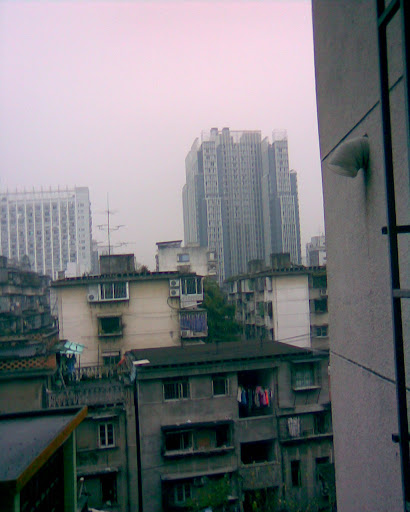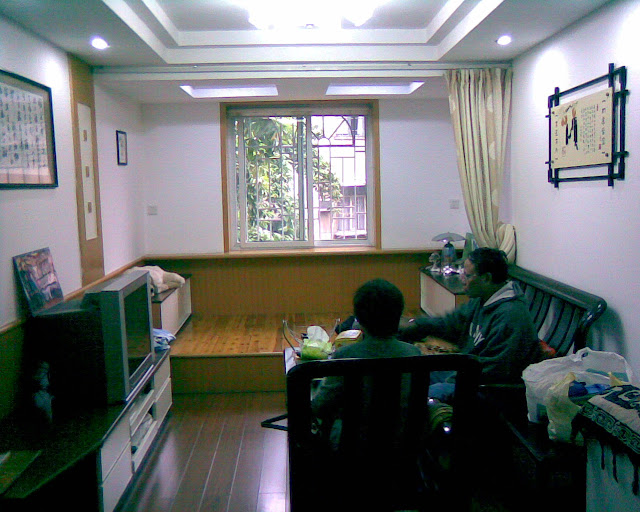This thread is worthless without a pic, so here they are:
The military base dormitory (left) that my dad and aunt used to live in when they were in their 20s. They were considered "nice" housing back in the days and the old wooden shacks they grew up in were redeveloped after a Taiwan air raid burnt part of the neighborhood.
The pink one on the right is a recent development, it used to be an open field here.
As you can see, the habit of the old days were to not lite a place unless someone is walking through it at night. No light for you during the day, and you bring a flash light with you if you go out at night (no street light). By the way, the stove of the kitchen ran on coal (compressed into a cake with cheese holes in the middle), that's why the kitchen window has a vent on the bottom, not the top.
Considered a nice place to live, it had the only swimming pool in the city back in the days. Those less fortunate would have to swim in the river or a fish pond.
Fast forward to the 90s, building like the ones in the first 2 rows of the photo below (and the pink building on the right side of the 1st photo above) starts showing up, they were low quality apartments that have at least decent living conditions (2 rooms, bathrooms that aren't in the public, and kitchen with propane stoves).
The building in the far back are recently finished and are up to the Western standard, but you have to be a business man to be able to afford it.
17 years ago I accidentally shoot a firework rocket to the building in the 2nd row (mid row) of the photo, and the rocket (2 stage) land on the bed sheet the family try to dry and caught it on fire. My aunt was so scared she hid me in the kitchen and turned off all the lights at home. Of course, we now have a good laugh of it.
With a remodeling, they are now closer to the living standard of the developed world.





